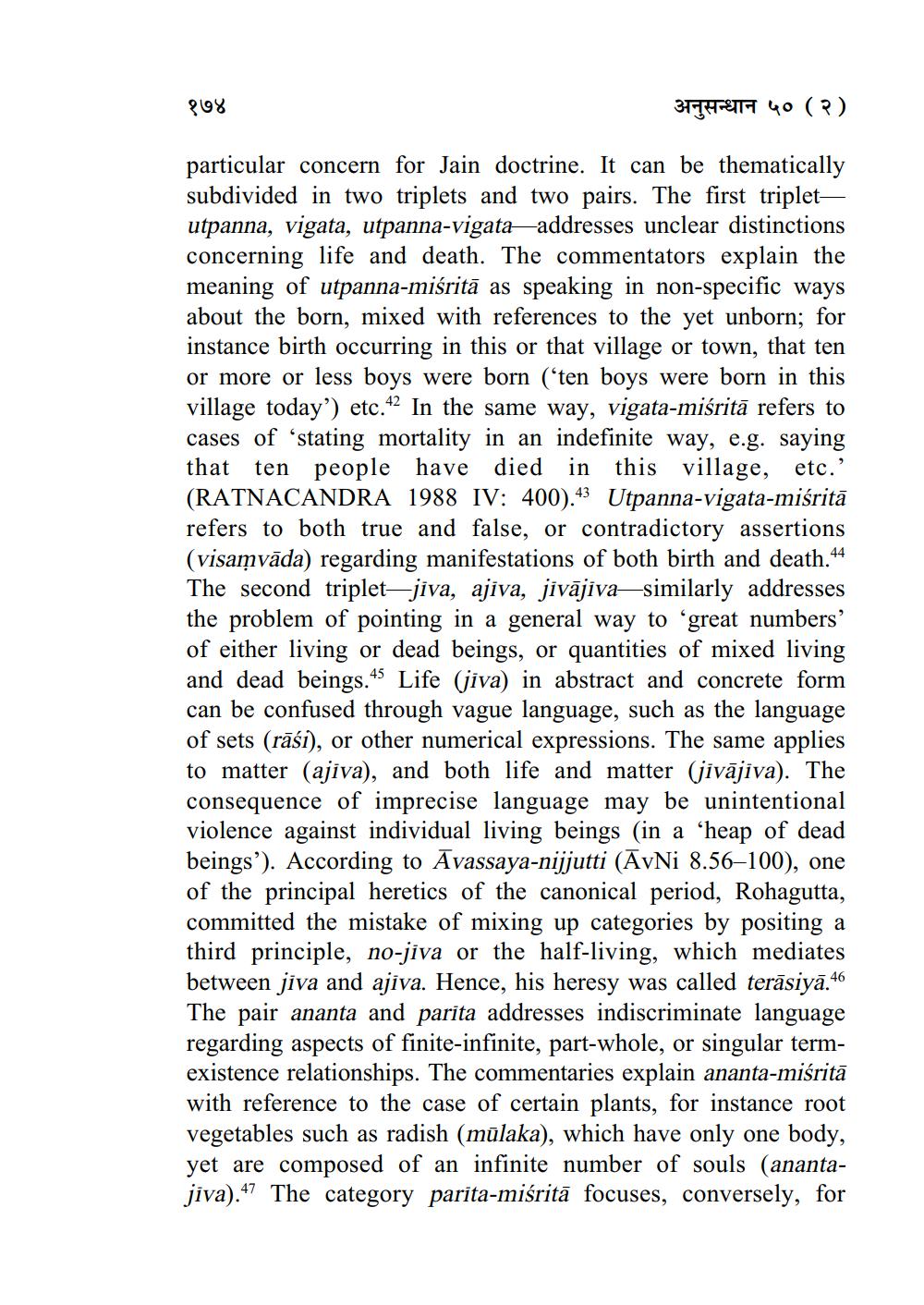Book Title: Truthfullness and Truth in Jaina Philosophy Author(s): Peter Flugel Publisher: ZZ_Anusandhan View full book textPage 9
________________ १७४ अनुसन्धान ५० (२) particular concern for Jain doctrine. It can be thematically subdivided in two triplets and two pairs. The first tripletutpanna, vigata, utpanna-vigata_addresses unclear distinctions concerning life and death. The commentators explain the meaning of utpanna-misritā as speaking in non-specific ways about the born, mixed with references to the yet unborn; for instance birth occurring in this or that village or town, that ten or more or less boys were born ('ten boys were born in this village today') etc.42 In the same way, vigata-misritā refers to cases of 'stating mortality in an indefinite way, e.g. saying that ten people have died in this village, etc.' (RATNACANDRA 1988 IV: 400).43 Utpanna-vigata-misritā refers to both true and false, or contradictory assertions (visamvāda) regarding manifestations of both birth and death.44 The second triplet - jiva, ajiva, jivājiva—similarly addresses the problem of pointing in a general way to 'great numbers? of either living or dead beings, or quantities of mixed living and dead beings.45 Life (jiva) in abstract and concrete form can be confused through vague language, such as the language of sets (rāśi), or other numerical expressions. The same applies to matter (ajiva), and both life and matter (jivājiva). The consequence of imprecise language may be unintentional violence against individual living beings (in a 'heap of dead beings'). According to Āvassaya-nijjutti (ĀvNi 8.56–100), one of the principal heretics of the canonical period, Rohagutta, committed the mistake of mixing up categories by positing a third principle, no-jiva or the half-living, which mediates between jiva and ajiva. Hence, his heresy was called terāsiyā.46 The pair ananta and parita addresses indiscriminate language regarding aspects of finite-infinite, part-whole, or singular termexistence relationships. The commentaries explain ananta-misritā with reference to the case of certain plants, for instance root vegetables such as radish (mūlaka), which have only one body, yet are composed of an infinite number of souls (anantajiva).47 The category parita-miśritā focuses, conversely, forPage Navigation
1 ... 7 8 9 10 11 12 13 14 15 16 17 18 19 20 21 22 23 24 25 26 27 28 29 30 31 32 33 34 35 36 37 38 39 40 41 42 43 44 45 46 47 48 49 50 51 52 53
